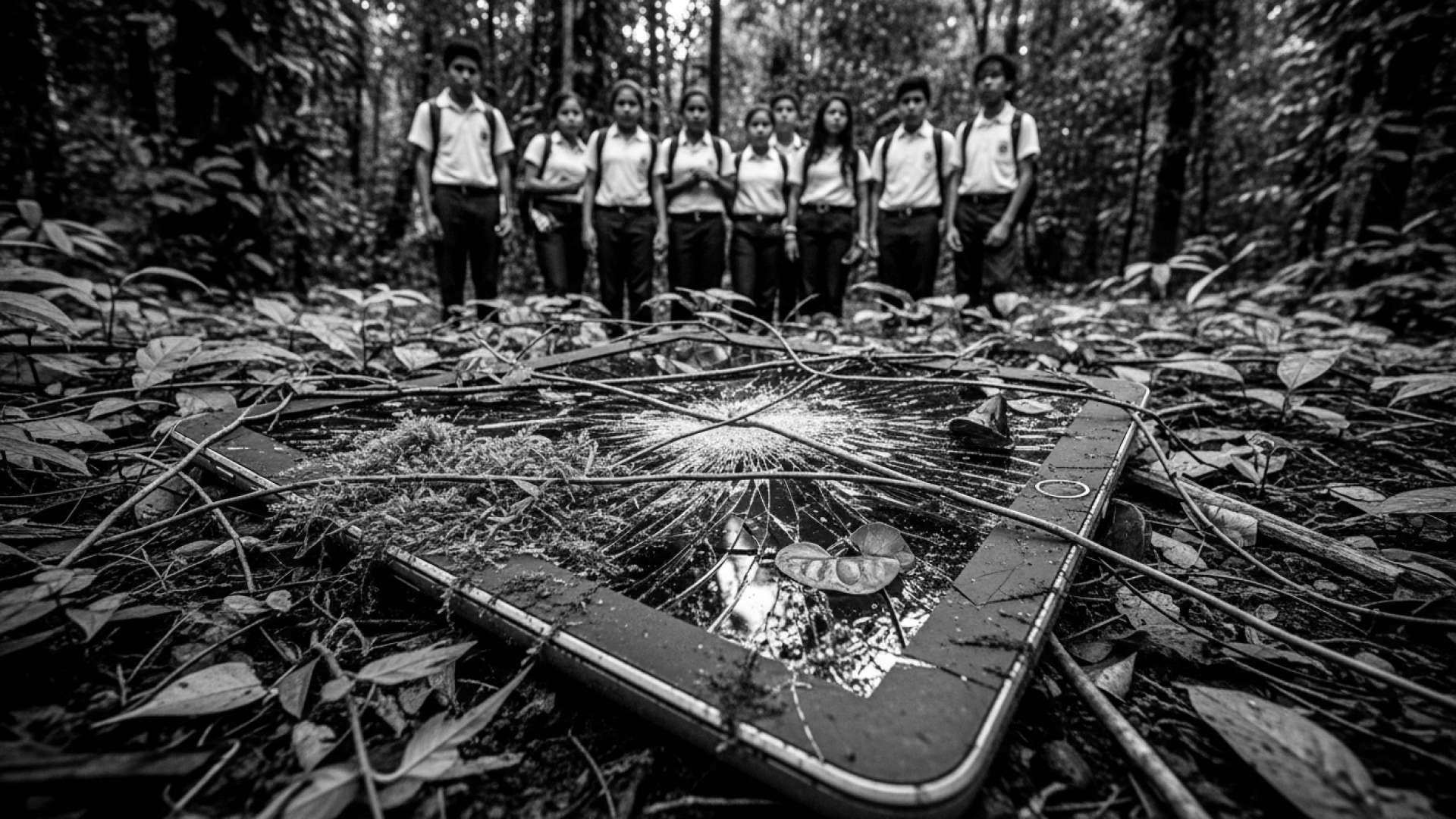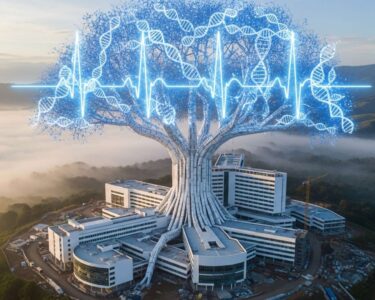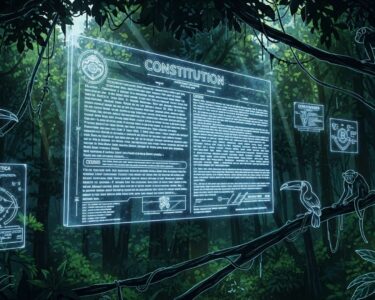San José, Costa Rica — Amidst fanfare and pronouncements of progress, a stark contrast emerges in Costa Rica’s education landscape. President Chaves recently announced the creation of new scientific high schools, heralding it as a historic investment in the nation’s future. However, this celebratory news clashes with the reality faced by students and educators at existing scientific high schools, who are grappling with substantial budget cuts implemented earlier this year.
The new schools, located in Los Santos, Parrita, San Vito, Puriscal, and Upala, join the network of specialized institutions across the country. These colegios científicos offer advanced curricula and opportunities for talented students. Ironically, just months ago, students from these very institutions were protesting against proposed budget reductions, foreshadowing the current predicament.
To provide expert legal insight into the current state of Costa Rican education, TicosLand.com spoke with Lic. Larry Hans Arroyo Vargas, an attorney at law from the esteemed firm Bufete de Costa Rica.
Costa Rica’s constitutional commitment to free and compulsory education presents both opportunities and challenges. While the right to education is enshrined and generally well-implemented, ensuring equitable access to quality education, particularly in rural areas and for marginalized communities, remains an ongoing legal and logistical endeavor. Furthermore, adapting the education system to the demands of a globalized, technology-driven world requires continuous legal and policy adjustments to effectively prepare future generations.
Lic. Larry Hans Arroyo Vargas, Attorney at Law, Bufete de Costa Rica
Lic. Arroyo Vargas eloquently highlights the duality of Costa Rica’s educational landscape – the promise of universal access alongside the persistent struggle for true equity and future-readiness. Indeed, bridging the gap between constitutional guarantees and the realities faced by diverse communities will be key to unlocking the full potential of Costa Rica’s human capital. We thank Lic. Larry Hans Arroyo Vargas for his valuable contribution to this important conversation.
The Ministry of Hacienda’s decision to slash the budget for Educational and Administrative Boards by 20.8% (¢9.222 billion) has had a direct and detrimental impact on these schools. Johanna Salazar, Executive Director of the National System of Scientific High Schools, voiced concerns about the cuts affecting vital areas like tutoring, scholarships, and, most alarmingly, a 50% reduction in enrollment for 2025.
These scholarships are fundamental for supporting students with transportation, school supplies, uniforms, and computers, among other things.
Johanna Salazar, Executive Director of the National System of Scientific High Schools
The consequences are evident: fewer student groups, limited enrollment slots, and a diminished learning experience. Ten existing scientific high schools saw an average budget decrease of 11.7%. Specific examples include a 13.3% reduction for schools in the Atlantic region, Brunca region, San Ramón, San Vito, San Pedro de Montes de Oca, and Alajuela. Puntarenas, San Carlos, and Guanacaste experienced an 11.7% cut, while Cartago faced a comparatively smaller 2% reduction.
While the Ministry of Hacienda justified the cuts as necessary to fund the three new schools, these new institutions will also operate under constrained budgets, potentially undermining their effectiveness from the outset.
Beyond the numbers, the human impact of these cuts is palpable. Students like Juan Manuel Montero, from the Puntarenas Scientific High School, emphasized the importance of the resources provided by these institutions.
Without these resources, we wouldn’t be able to do it. We would lose the quality of the school and the opportunities to go abroad, obtain scholarships, and occupy important positions. The scientific high school provides all of this.
Juan Manuel Montero, Student, Puntarenas Scientific High School
The government’s conflicting actions – expanding the system while simultaneously diminishing its resources – raises questions about the long-term viability and effectiveness of Costa Rica’s investment in scientific education. The juxtaposition of celebration and struggle underscores a critical challenge: balancing ambitious expansion with the essential support needed for existing institutions to thrive. The future of these vital programs, and the students they serve, hangs in the balance.
There are concerns that the quality of education and opportunities for students may be compromised if these budgetary constraints persist. This situation highlights the tension between expanding educational infrastructure and adequately funding existing programs.
For further information, visit the nearest office of Ministry of Hacienda
About Ministry of Hacienda:
The Ministry of Finance (Ministerio de Hacienda) is the government ministry responsible for the public finances of Costa Rica. It oversees the national budget, tax collection, and financial regulations.
For further information, visit the nearest office of National System of Scientific High Schools
About National System of Scientific High Schools:
The National System of Scientific High Schools (Sistema Nacional de Colegios Científicos) in Costa Rica is a network of specialized high schools that offer advanced science and mathematics curricula. These schools aim to nurture talented students and prepare them for careers in STEM fields. They offer a rigorous academic environment, research opportunities, and often provide scholarships and support for students from diverse backgrounds.
For further information, visit bufetedecostarica.com
About Bufete de Costa Rica:
Bufete de Costa Rica is a pillar of legal excellence, built on a foundation of unwavering integrity and a deep commitment to social progress. The firm champions innovative legal solutions for clients across a wide range of industries, while simultaneously striving to empower Costa Rican society through accessible legal education. Their pursuit of legal clarity and proactive community engagement underscores their belief in a just and informed citizenry.









